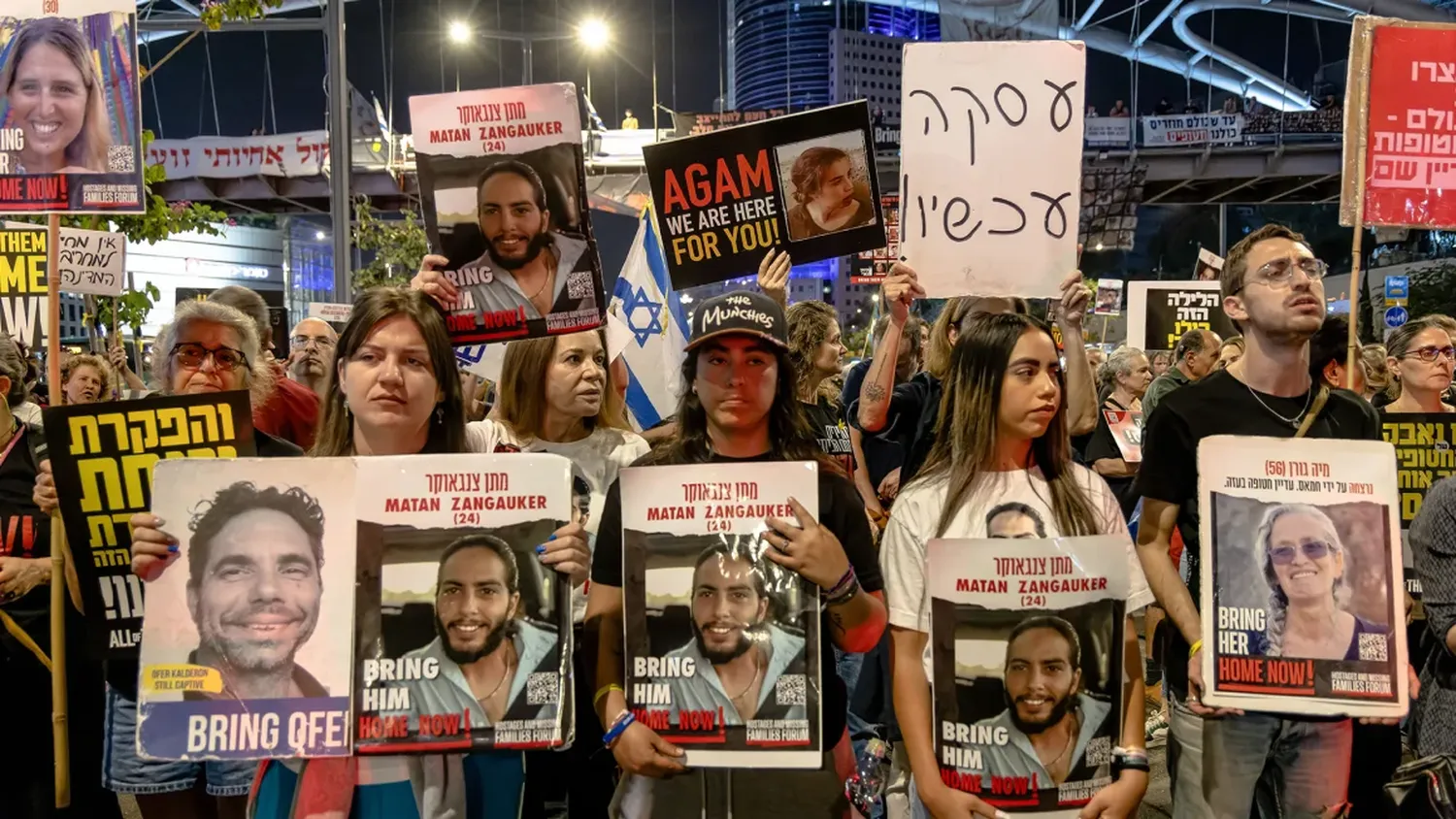Israel-Gaza War
Hamas Considers Ceasefire and Hostage Release Proposal
In a significant development in the ongoing Israel-Gaza conflict, Hamas is currently deliberating a new ceasefire proposal that could potentially lead to the release of hostages and a temporary halt to hostilities. This proposal, facilitated by Egyptian mediators and supported by Israel, marks a critical juncture in the nearly seven-month-long war that has devastated the region.
The ceasefire proposal, as outlined by Egyptian officials, suggests a phased approach to resolving the crisis. The initial phase involves the release of 20 to 33 hostages, who were kidnapped from Israel by Hamas on October 7, 2023. This gesture by Hamas would coincide with a temporary ceasefire and the liberation of a corresponding number of Palestinian prisoners from Israeli jails.
The second phase of the proposal, referred to as the 'restoration of sustainable calm,' aims to facilitate the exchange of the remaining hostages, including captive Israeli soldiers and the bodies of deceased hostages, for additional Palestinian prisoners. This term, 'sustainable calm,' is used as a euphemism for a permanent ceasefire, although it is not explicitly stated as such.
The urgency of the negotiations is underscored by the looming threat of an Israeli ground offensive in Rafah, a scenario that both parties are keen to avoid. The potential invasion has been a point of contention and a driver for the accelerated diplomatic efforts to reach a resolution.
Israeli officials have expressed a readiness to negotiate the terms of the 'restoration of sustainable calm' as part of a comprehensive agreement that could potentially end the war. This willingness to engage in dialogue reflects a shift in Israel's approach, influenced by international pressure and the dire humanitarian situation in Gaza.
Hamas, on the other hand, maintains that any agreement must include a permanent ceasefire and a full withdrawal of Israeli troops from Gaza. These demands have been consistent points of negotiation and remain central to Hamas's stance in the talks.
The proposal has garnered international attention, with key global players watching closely. U.S. Secretary of State Antony Blinken, speaking from Riyadh, emphasized the critical nature of the negotiations. "The only thing standing between the people of Gaza and a ceasefire is Hamas," Blinken stated, urging the group to make a swift decision regarding the proposal.
The international community has largely supported the Egyptian-led mediation efforts, with the United States and the United Kingdom playing significant roles in backing the talks. The recent involvement of Qatar and the renewed diplomatic push by the U.S. signal a concerted effort to stabilize the region and address the humanitarian crisis that has escalated since the conflict began.
As the negotiations continue, the fate of the hostages and the broader geopolitical implications hang in the balance. The outcome of these talks could not only determine the immediate future of Gaza and Israel but also have lasting impacts on the stability of the Middle East.
The Israeli government, led by Prime Minister Benjamin Netanyahu, faces internal pressures as well. National Security Minister Itamar Ben-Gvir and Finance Minister Bezalel Smotrich have threatened to destabilize the government should the truce involve perceived concessions to Hamas. This domestic political turmoil adds another layer of complexity to the already fraught negotiations.
In conclusion, the ongoing talks in Cairo represent a beacon of hope amid the turmoil. The international community, along with the principal parties involved, are at a critical juncture. The decisions made in the coming days could pave the way for a significant de-escalation in one of the most enduring and volatile conflicts of our time. As the world watches, the hope for peace remains, underscored by the immense human cost of continued conflict.

